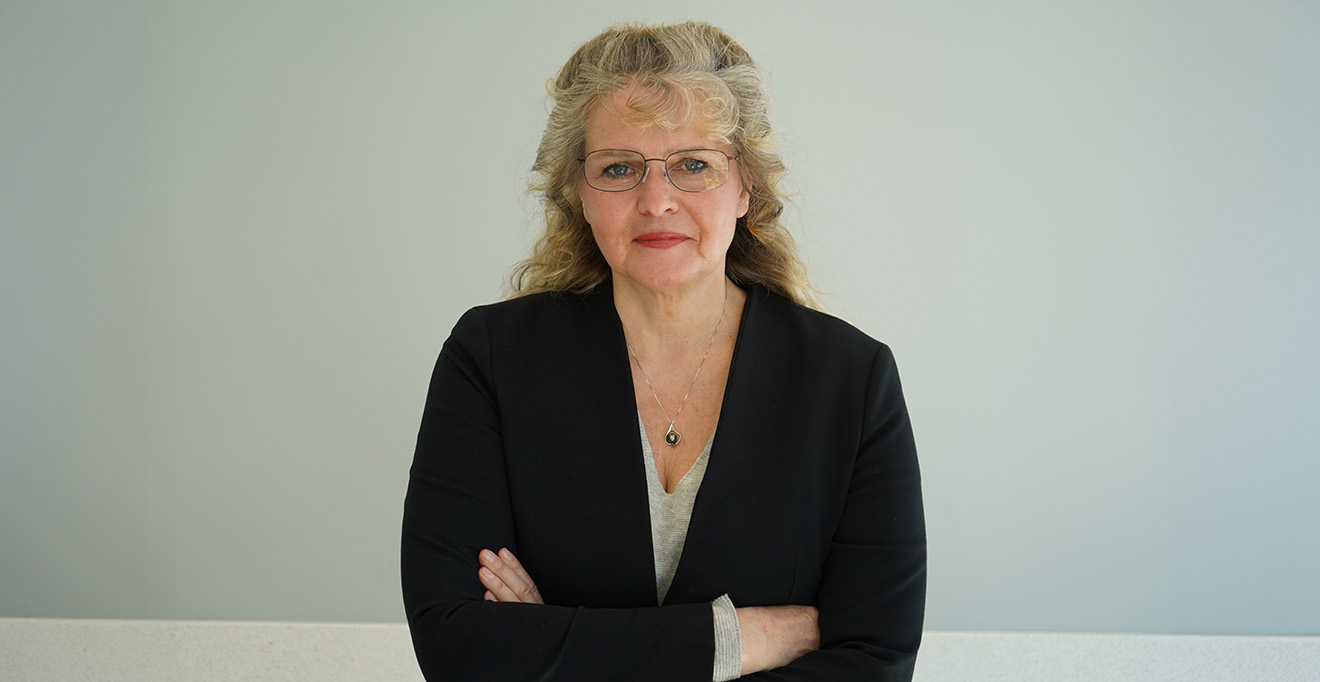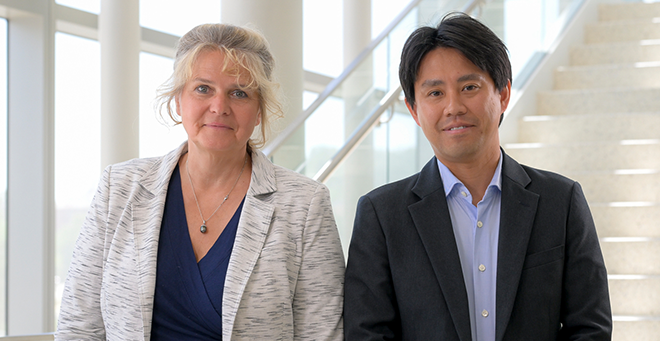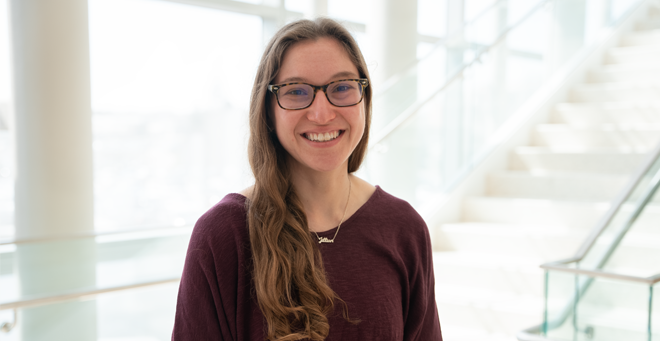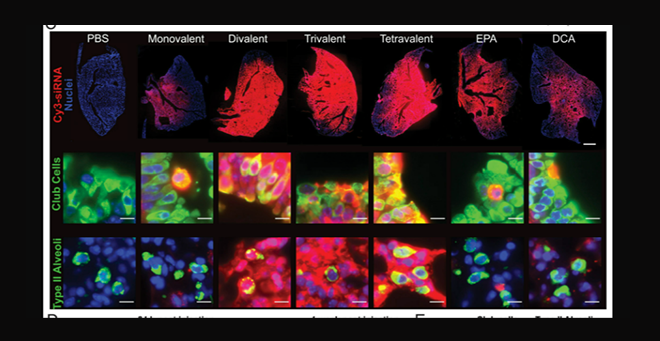
Photo: Laura Cummings, UMass Chan RTI
UMass Chan Medical School RNA biologist and chemist Anastasia Khvorova, PhD, has received the 2025 Else Kröner Fresenius Prize for Medical Research. Dr. Khvorova received the award, which is accompanied by a $2.7 million prize, for her pioneering work in the field of RNA-based therapies. Her research has contributed significantly to the development of new approaches for treating genetic and neurodegenerative diseases, such as Huntington’s disease. An award ceremony will take place on May 15 at the Städel Museum in Frankfurt, Germany.
“It’s a true privilege to be named the 2025 Else Kröner Fresenius Prize awardee,” said Khvorova, the Remondi Family Chair in Biomedical Research and professor of RNA therapeutics. “Having the opportunity to create new knowledge that didn’t exist before is amazingly rewarding, but translating basic scientific discoveries to the clinic in a way that makes a difference to a patient’s life is the dream. This generous prize from the Else Kröner Fresenius Foundation will help advance our goal of bringing new RNA-based therapies to patients suffering from Huntington’s and other neurodegenerative diseases.”
At $2.7 million (2.5 million euros), the prize is one of the most generously endowed of any medical research prize. Awarded for the first time in 2013 on the 25th anniversary of the death of Else Kröner, the prize is given to scientists in emerging fields of biomedicine that are highly relevant and promising.
This year’s prize honors research in basic medical sciences or clinical sciences in the emerging field of RNA-based therapeutics. Previous awards have been given for immunology, diseases of worldwide significance, gene editing, and gene therapy, as well as the biological basis of psychiatric disorders.
RNA-based therapeutics use a variety of RNA molecules to fight diseases at the molecular level. Innovative approaches make it possible to inhibit the production of toxic proteins and stimulate the production of missing proteins. Despite great progress in the field in recent years, there are still major challenges for clinical application because RNA molecules often remain inaccessible to organs other than the liver.
The Khvorova lab at UMass Chan develops and modifies RNA molecules to improve delivery and effectiveness in diverse tissues throughout the human body. Khvorova’s work focuses on chemical modifications that improve the delivery, stability, efficacy and specificity of potential therapeutics. Much of her research to date has gone into making sure RNA therapeutics can get into other organs, such as the brain, so that they can perform their action there.
Khvorova plans to use the prize money to develop novel RNA molecules that can prevent the production of toxic proteins in the brain. Such abnormal proteins are behind aging and many neurodegenerative diseases, including Huntington’s disease.
Huntington’s is an incurable neurodegenerative disorder that causes the progressive breakdown of nerve cells in the brain, resulting in deterioration of physical and mental abilities. It is characterized by motor, cognitive and psychiatric symptoms that typically begin when people are in their 30s to 50s. The disease is caused by a mutation in the Huntingtin (HTT) gene that results in an abnormal HTT protein. Accumulation of abnormal HTT protein in neurons is toxic and induces neuronal dysfunction and death.
Khvorova has more than two decades of experience pioneering RNA-based drug development, conducting research at various universities and holding senior positions in the pharmaceutical industry. She received her PhD from Moscow State University in 1994 and moved to the U.S. in 1995, where she completed a postdoctoral fellowship at the University of Colorado, Boulder. She holds more than 150 patents and is an elected fellow of the National Academy of Inventors. She joined UMass Chan in 2012.
The Else Kröner Fresenius Prize was established in honor of the lifetime achievements of Else Kröner, a German pharmacist and humanitarian who helped build a global health care company. This year’s award is in celebration of Else Kröner’s 100th birthday and honors her exceptional dedication to medical research. At 21 years of age, as the foster daughter of Eduard Fresenius, she took over the management of his pharmaceutical company upon his death. Under her management, the originally small business grew to an internationally successful health care group, the present-day Fresenius SE & Co. KGaA. Her life’s work includes not only building up the global company but also establishing the Else Kröner Fresenius Foundation in 1983. Else Kröner died suddenly on June 5, 1988.


